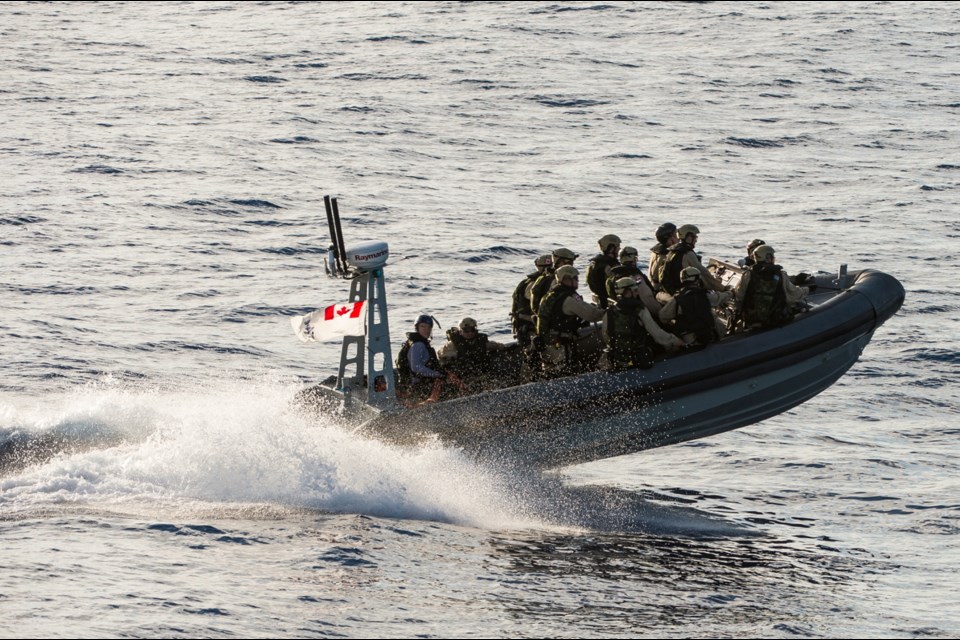HMCS Regina’s recent drug bust at sea took more than 12 hours in temperatures reaching 43 C, and was part of the fight against international terrorism.
Regina, which left CFB Esquimalt Jan. 6 to join an international mission in the Indian Ocean, carried out a meticulous search of a vessel off the east coast of Africa. A total of 132 kilograms of heroin was found on a dhow, a boat common to the area and generally used for fishing or moving cargo.
Even though dhows are relatively small at an average of about 65 feet long, they can be very difficult to search, Cmdr. Dan Charlebois said via satellite phone from the navy vessel.
“No two dhows are built the same, and there are so many places where you can hide things in these vessels,” he said.
“The boarding team does an extremely thorough search from top to bottom.
“By the end of the day, they’re soaked through in sweat and covered in grime.”
Charlebois said that drug smuggling is targeted because it is thought to finance terrorist organizations. Heroin and hashish are the most prevalent illegal drugs in the area, he said.
Marine security and counterterrorism are the basic goals of the current mission, Charlebois said. Canada’s contribution, part of Combined Task Force 150, is called Operation Artemis.
There are three combined-force operations made up of 30 countries that help stabilize international waters in the Middle East.
“We’re working with our coalition partners here to basically keep the ocean highways free of illicit activity,” he said.
“We share information, we share intelligence.”
Charlebois said the heroin was found Monday in individual packages of about one kilogram each. The drugs were brought back to the ship, where each bag had to be photographed, catalogued and the contents deposited at sea. The painstaking effort took about four hours.
“We dispose of them one bag at a time, very carefully, I would say methodically even,” he said. “We cut each individual bag open and we dump them separately to make sure that it’s not all going in at the same time.”
The find was a first for Regina on its current deployment. Its Canadian predecessor with Operation Artemis, HMCS Toronto, located a record 538 kilograms of heroin in a vessel off Africa in December. The Canadian Forces said it was the biggest heroin seizure in the history of combined naval operations.
Charlebois said his crew was gratified to have done its part in fighting the drug trade, and even though it was a tough job “there was nothing but smiles and high-fives at the end of it.”
“People are really happy to get some tangible results.”
Defence Minister Rob Nicholson said in a statement that efforts such as Regina’s are good for the region while also helping to keep illegal drugs off Canada’s streets.
Charlebois said activity like the drug seizure tends to come in cycles at sea.
“It’s one of those things, when it rains it pours. We’ve been really busy over the last two weeks.”
One reason for busier times is the end of monsoon season, which means calmer seas. “That’s when you’ll see more traffic transiting from the northern Arabian Gulf down to the east coast of Africa,” Charlebois said.
Regina, carrying a crew of 260, is due back at CFB Esquimalt about mid-September.



